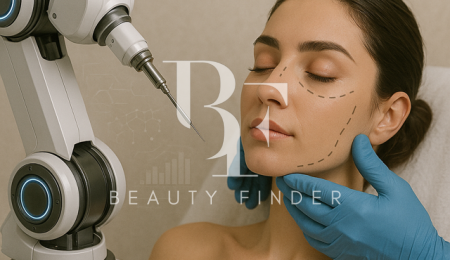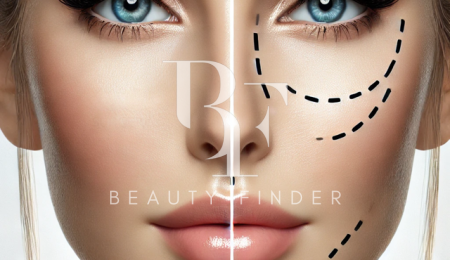Introduction
Dubai has become a global hub for cosmetic surgery, offering state-of-the-art facilities and highly skilled surgeons. Whether you’re considering a facelift, rhinoplasty, liposuction, or any other type of cosmetic procedure, your first consultation with a plastic surgeon is a critical step in the process. It sets the stage for understanding the surgery, managing expectations, and determining if you’re comfortable with the surgeon. Proper preparation for this consultation is key to ensuring that you’re well-informed and confident in your decisions.
In this article, we’ll explore how to prepare for your first cosmetic surgery consultation, what questions to ask, and what to expect from the process.
1. Research Your Procedure
Before attending your consultation, it’s essential to have a basic understanding of the procedure you’re considering. Doing your homework will help you have an informed discussion with your surgeon and allow you to ask more targeted questions. Here are a few steps you can take to research your procedure:
- Understand the basics: Learn what the procedure involves, how it’s performed, and the recovery time. This information is readily available on reputable medical websites and cosmetic surgery forums.
- Watch videos: Many clinics post videos of surgeries or offer virtual tours of the process. These can give you an idea of what to expect during the operation.
- Know the risks and benefits: Every surgery has its pros and cons. Be sure to understand both the advantages and potential complications of the procedure you’re considering.
2. Prepare a List of Questions
Your first consultation is your opportunity to clarify any doubts or concerns you may have. Preparing a list of questions ahead of time ensures that you won’t forget to ask about important details. Here are some key topics to cover:
- Surgeon’s qualifications: Ask about the surgeon’s education, certifications, and experience with the specific procedure you are considering.
- Recovery time: Inquire about how long the recovery process will take and what kind of post-operative care you’ll need.
- Possible risks and complications: No surgery is without risks, so ask about the most common complications associated with the procedure and how they are typically managed.
- Results: Ask what kind of results you can realistically expect and if the surgeon can provide before-and-after photos of past patients.
- Cost: Be clear about the total cost of the surgery, including any additional fees for anesthesia, follow-up visits, and medications.
3. Bring Your Medical History
Your cosmetic surgeon needs to know about your medical history to assess if you’re a good candidate for surgery. Be prepared to provide detailed information about your health, including:
- Chronic conditions: Inform your surgeon about any ongoing medical conditions, such as diabetes, heart disease, or autoimmune disorders, which may affect your eligibility for surgery.
- Previous surgeries: If you’ve had prior surgeries, cosmetic or otherwise, share this information, as it may impact your surgical plan.
- Medications: List all medications, supplements, or vitamins you are currently taking. Some drugs can affect anesthesia or blood clotting, so your surgeon may advise you to stop taking certain medications before surgery.
4. Manage Your Expectations
One of the most important aspects of a successful cosmetic surgery consultation is having realistic expectations. Cosmetic procedures can improve your appearance, but they may not deliver perfection. During your consultation:
- Ask about realistic outcomes: Your surgeon should provide you with a clear idea of what results are achievable based on your unique anatomy and the specifics of the procedure.
- Review before-and-after photos: Viewing photos of previous patients with similar body types and concerns can give you a better sense of what to expect.
- Be open to the surgeon’s advice: A qualified surgeon may suggest alternative procedures or additional treatments to help you achieve your desired outcome.
5. Prepare Mentally and Emotionally
Undergoing cosmetic surgery is not only a physical transformation but also an emotional journey. It’s important to ensure you’re mentally prepared for the changes ahead. Here are some tips:
- Consider your motivations: Be sure that you’re seeking surgery for the right reasons, and not because of external pressures or trends.
- Understand the recovery process: Some surgeries involve weeks or even months of recovery. You may experience swelling, bruising, or discomfort during this period. Knowing what to expect emotionally can help you handle the recovery phase better.
- Talk to past patients: If possible, speak to people who have undergone the same surgery. They can provide valuable insights into what the experience is truly like.
6. Understand the Consultation Process
During the consultation, the surgeon will assess whether you’re a good candidate for the procedure. This involves a physical examination, reviewing your medical history, and discussing your goals. Here’s what you can expect:
- Physical examination: Your surgeon will examine the area you want to have treated, taking measurements and possibly photographs for your medical records.
- Discussion of surgical techniques: The surgeon will explain how the procedure will be performed and what techniques they will use. They may also go over the type of anesthesia that will be used.
- Recovery plan: You’ll receive detailed instructions on what to expect post-surgery and how to care for yourself during recovery.
- Setting a date: If you decide to move forward, you’ll schedule your surgery and any necessary pre-operative tests.
7. Cost and Financing Options
Cosmetic surgery can be a significant financial investment. During your consultation, make sure to ask for a detailed breakdown of the costs involved, including the surgery itself, anesthesia, hospital fees, and any follow-up appointments.
- Payment plans: Many clinics offer financing options or payment plans to help make the procedure more affordable.
- Insurance coverage: While most cosmetic procedures are not covered by insurance, certain surgeries that are medically necessary (such as a rhinoplasty to correct breathing problems) may qualify for partial coverage. Be sure to check with your insurance provider.
Conclusion
Preparing for your first cosmetic surgery consultation in Dubai is an important step toward achieving the results you desire. By researching your procedure, asking the right questions, and managing your expectations, you can ensure a smooth and informative consultation. Dubai’s world-class cosmetic surgeons are ready to guide you through every step of the process, helping you make informed decisions about your appearance and well-being.
Cosmetic surgery is a deeply personal decision, and a well-prepared consultation ensures that you are making the right choices for your body and your goals. With the right preparation, you’ll be ready to embark on this transformative journey with confidence.
Here you can find high-quality plastic surgery clinics, making it easy to choose the one that suits you best
https://beautyfinder.ae/all-ads/listing-category/plastic-surgery/






Leave a Reply